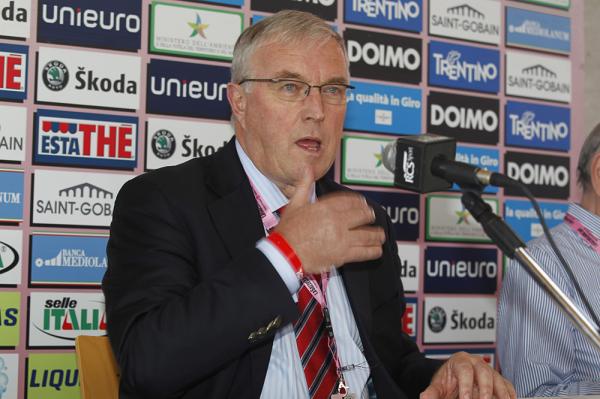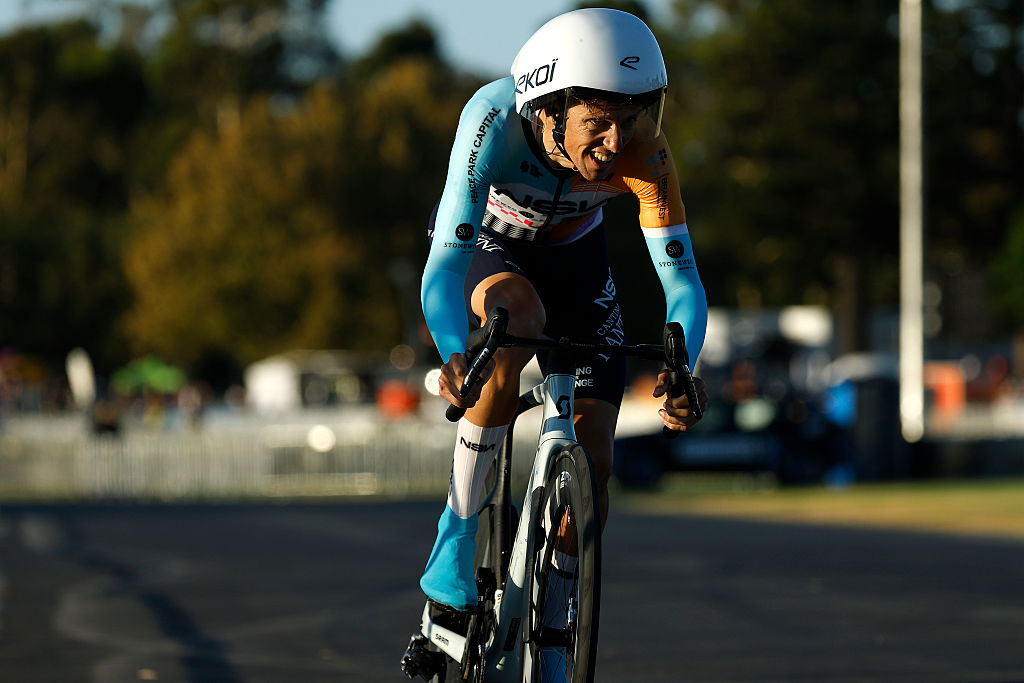Has the UCI woken up and smelt the coffee?
Conflict of interest and the Armstrong donation
The latest race content, interviews, features, reviews and expert buying guides, direct to your inbox!
You are now subscribed
Your newsletter sign-up was successful

Perhaps one of the bars in l'Aigle has invested in a new espresso machine recently, and the aroma of fresh cappuccino has wafted down the road to UCI headquarters. One thing is sure: this week Pat McQuaid seems finally to have woken up and smelt the coffee. After a mere four and a half years he has placed Lance Armstrong's donation to the UCI's anti-doping programme and the words "conflict of interest" sufficiently close to the other to suggest that they may not be entirely unrelated.
"I think based on experience, based on hindsight and 20/20 vision, and based on the claims of a conflict of interest, the UCI would be very careful before accepting a donation from a rider in the future," said McQuaid when asked about the issue on Tuesday at the Giro. That sounds a little fudged, but it marks considerable progress.
Back in 2005, when I quizzed him on behalf of the Guardian on the issue as the UCI prepared to launch an inquiry into l'Equipe's allegation that EPO had been found in Armstrong's urine samples from the 1999 Tour, McQuaid saw it differently: "I am aware that there is a danger of that perception [of conflict of interest] being there," he said. "...If someone has provided assistance in the fight against doping, that doesn't prejudice the independence of the UCI in the anti-doping fight. Certain people might perceive it as [a conflict of interest], but intelligent people wouldn't."
The president said other stuff this week that merits a little further inspection. To start with, the fact that the UCI apparently had to chase Armstrong for the money three years after he promised it. That is a surreal thought: one blazer saying to another 'hey, he promised us 100K a while back, hasn't turned up yet, we'd better get on to him about that'.
Presumably in the interests of open-ness the UCI will reveal the exact date in 2005 when they asked Armstrong for the money and when the cheque was paid. Let's hope both were before August 23, 2005, when l'Equipe ran its story. If it was between that date and October 5, when Emile Vrijman was appointed to head the inquiry, that would imply the UCI was simultaneously figuring out what to do with the l'Equipe allegations while squeezing cash out of the person at the heart of them. You know how it is, left-hand, right-hand, they don't always know what the other is doing.
McQuaid asserted this week that "at the time, in 2002, no accusations against Lance Armstrong had been made. They've all came up since then." Strictly speaking, that is true. There was questioning and controversy and strenuous denial, but actual accusations against Armstrong started only in 2004, with the publication of David Walsh and Pierre Ballester's book "LA Confidential", and got serious with the l'Equipe story a year later.
It is a side issue in any case. Whether accusations against Armstrong had or had not been made should have been irrelevant even in 2002. A governing body that has the power to recommend sanctions in any field should be whiter than white and should be seen to be so. As McQuaid says, hindsight is a fine thing, but there should have been no question of the UCI accepting a donation from any athlete who was competing at the time. There is a good reason for that: it might one day have to recommend a sanction of some kind to that athlete, be it for doping or merely pissing in public at a race while wearing a jersey with incorrectly sized sponsor's logos and riding a curiously shaped bike.
The latest race content, interviews, features, reviews and expert buying guides, direct to your inbox!
The UCI would not have envisioned that one day they might have to commission an independent inquiry into Armstrong, and they would have to appoint the inquiry head. But however he was perceived at the time, there was a legalistic, objective possibility that they might have to make a ruling involving him in the same way that they might with any rider.
There's a curious symmetry to all this. Taking cash from Armstrong is not the only curious decision cycling's governing body has taken in the last few years. The ProTour sparked a furious war with the major race organisers and distracted from the doping fight. You can point a finger at the slash and burn approach to Olympic track cycling and the incoherence over the omnium - how many events? What schedule? How does it fit into the World Cups and the world championships? - not to mention the open question about qualification. You can smile wryly at the bizarre attempts to ensure that the richest federations don't get the best bikes. Let's just hope that in five year's time, Pat McQuaid isn't sitting in front of the media saying "based on experience, based on hindsight and 20/20 vision" the organisation he heads got those ones wrong too.
William Fotheringham is cycling correspondent for the Guardian, and the author of "Fallen Angel, the Passion of Fausto Coppi"
